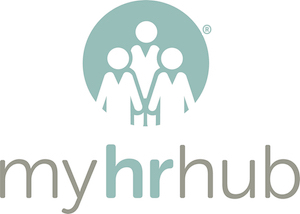
May was a busy year for the progress of HR and Employment bills, with four we have previously covered completing their passage through Parliament and receiving Royal Assent – the final stage of their journey into law.
Whilst these bills did not become law instantly and we are awaiting formal implementation dates for each, they are now impending and all HR professionals and employers need to be aware and begin taking steps to prepare.
What was passed?
Carers Leave
The Carer’s Leave Act 2023 is likely to take effect from April 2023 and gives employees with caring responsibilities the legal right to five unpaid days off each year to carry out their caring responsibilities for someone who:
- Is elderly
- Has a disability
- Suffering from illness/injury for more than 3 months
What now? Employers will need a new policy on carers leave and line managers will need guidance on how this works. However, it is currently unclear what exactly this statutory carers leave policy should include as the Government is yet to publish the regulations that implement it.
Neonatal Leave
The Neonatal Care (Leave and Pay) Act 2023 gives parents of babies who need to go in to hospital for at least seven consecutive days and in the first 28 days of their life for neonatal care, extra time added to their maternity, paternity and shared parental leave.
This will have mean that for every week the baby spends in hospital, the parents will get an extra week added onto their leave, up to maximum extra 12 weeks. Due to the complex nature of shared parental leave, we are awaiting confirmation of how neonatal leave will apply to it.
Implementation is estimated to take place from October 2024 – giving HMRC and employers enough time to accommodate new statutory pay provisions.
What now? Employers will need a new policy on neonatal leave and line managers will need guidance on how this works. However, it is currently unclear what exactly this statutory neonatal leave policy should include, as the Government is yet to publish the regulations that implement it.
Additionally, policies related to neonatal leave such as maternity, paternity and shared parental leave will need to be reviewed to include neonatal leave – but again, this cannot be completed until the regulations have been published.
Redundancy protections for new and expectant parents
Under current laws, employers are legally required to offer women on maternity leave a suitable alternative role during redundancy.
The Protection from Redundancy (Pregnancy and Family Leave) Act 2023 is likely to take effect from April 2024 – or possibly sooner – and extends this right to a suitable alternative role during redundancy to the following groups:
- Pregnant women who have not yet left for maternity leave
- Those who have come back from maternity, adoption and shared parental leave until 18 months after the birth/adoption
The act also creates new rights of unfair dismissal and discrimination if these employees are not favoured above all others in the redundancy exercise.
What now? Employers will need to review and update their current redundancy policies and procedures to include this extension of protection, as changes will likely be required before the implementation date.
Allocation of tips
Designed to stop employers keeping tips for themselves, the Employment (Allocation of Tips) Act 2023 creates a new duty for employers to pass all tips, gratuities and service charges on to their workers.
Expected to take effect from April next year, this bill will also create a legal requirement to:
- Have a policy on how tips are allocated – in line with a yet-to-be-published statutory code of practice.
- Keep records of how tips are allocated
- Give employees the right to see records employers keep on tip allocation
- Entitle employees to make a tribunal claim if they believe tips are not being fairly allocated
What now? Ahead of the implementation, affected employers will need a new policy on tips for hospitality employers – this will be an absolute legal requirement. Once the Code of Practice is released, employers will have guidance on what this policy must contain.
Additionally, employers will need to know what the Government standard for ‘fair allocation’ of tips is and they may need to change their practices to comply. The pending code of practice is expected to clarify this.
Support every step of the way

The world of HR can be confusing and complex. If your organisation will be impacted by these new laws and you’re feeling daunted, get in touch with us today and our expert team can help you and your business prepare for them to take effect.
Subscribe to our newsletter to get the latest updates from the world of HR and stay in the loop.


Recent Comments